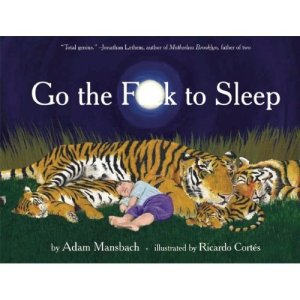Now, I'm not talking about "more authors!" or "less print!" or the other distress signals that I have seen pop up over the internet and among my writing peers. I'm talking about step by step, nuts and bolts, on how the fundamental world of publishing is going to change in ways that affect you, the writer. Will I have to epublish? Will I have to market in new methods? Now, I can't tell you yes or no with absolute certainty, but like Chess, I think there's enough information out there to look four or five moves out and anticipate what the landscape will look like with some good reasoning.
Last time, I started by setting the groundwork in my last post, the introduction (see below), on what I wanted to go over. Here I want to start going into depth on the first part of my VERY simplified publishing process which includes Craft, Selection, Distribution, Compensation, and Reception.
So, Craft.
How are Amazon and ebooks going to change the way YOU write your novels? Are they? How do we as authors write at the present? We brainstorm ideas, sketch outlines, make character webs, organize character traits, make a rough draft, revise, second draft, revise, (rinse and repeat), find a critique group to help out, and voila, we have a final draft. Now, yes, this is very simplified and I'm going to cut the line at where we take the draft to any sort of professional review (e.g. editor, literary agent), because I talk about that in Selection. But does Amazon have any play in any of the above components of our craft? Not exactly; we don't even think about publishing channels until we have something to show for. But what about inexactly?
Let's dive a bit deeper. In my mind, and likely at the mind of authors wanting to write publishable stories, is the (bitter?) reality that we must write for consumers. This is how books turn into bucks. Yes, it's sad that there simply won't be enough people who like your obscure plot line or obtuse characters to get past the breakeven point, but that's when you adapt it in ways that you feel will be more accessible. That's how it's always been. No change yet. What Amazon (and the digital age in general) has done is transformed entertainment away from reading and towards screens (video games, movies, TV, Kindle, etc). Screens are associated with short term entertainment like cartoons or movies. But in addition, what written entertainment remains has largely been pressured by downsizing: converting stories into bite size pieces which go down easily like candy instead of the turkey and potatoes of classic literature. See here for what I'm talking about.
Furthermore, for the YA writers out there (myself included) take a look at this interesting marketing move done by Scholastic. Rick Riordan, the author of the Percy Jackson series and the 39 Clues series is going to release a seven part short story ebook series later this year. He will be releasing each ebook daily over the course of a week from December 25, 2011 to December 31, 2011. Ever thought of writing a story like that? Seven mini stories? Each story, will come with a playing card and information which can be plugged into a multimedia, interactive platform online for kids to solve puzzles and presumably complete the story. How about that? Websites? Playing cards? This sort of story telling, if successful (and the interactivity of the 39 Clues books which are already out have been very successful) does have the potential to steer how authors craft their books. Have you thought about designing a website to literally tell part of your story for you? How about a video game or playing card set?
Now, I can't say that this type of multi-platform storytelling is the wave of the future, but it highlights the growing assumption that shorter attention spans will necessitate shorter books or at least, smaller bites. Are you planning your own Atlas Shrugged or Les Miserables anytime soon? You may want to reconsider breaking it into a series, website, and playing card set while you're at it.
And it's not just me that thinks shorter stories are an inconvenient truth. I heard a great interview with Seth Godin, director of "The Domino Project," which also discusses some of the changes authors will make in the way they write in light of the new Amazonian landscape. Although largely about distribution, he does mention that no word should be written without purpose and every effort to write succinctly must be made. You can listen to it here (scroll down to the play button).
Ultimately though, I think that Amazon has the least influence over this part of the writing process. We write for readers, not online retailers. If readers expect shorter books than they are the driving factor in that change, not Amazon. We just need to be prepared for how new channels of reaching those readers might change how we craft our stories. Similarly put, if readers want to eat up vampires and werewolves for the next fifty years, then authors better be prepared to give it to them. These things are just supply and demand though, something not even Amazon can influence.
Next time, I'll talk about Selection, which I believe will get into the heart of what I see changing in the publishing industry.




